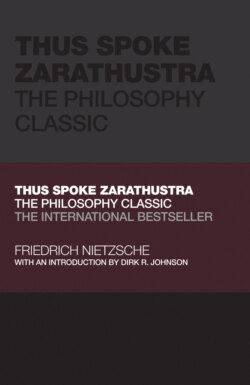Читать книгу Thus Spoke Zarathustra - FRIEDRICH NIETZSCHE, Friedrich Nietzsche - Страница 23
THE CONVALESCENT
ОглавлениеIn “The Convalescent,” Zarathustra presents the fullest (and only) articulation of his enigmatic concept, the eternal return. It is tempting to think that the first iteration presented within the riddle was its true expression. But Zarathustra was not yet in the position to call it forth. His encounter with the writhing shepherd was both a vision and a premonition – a premonition of his own future confrontation with the thought.
In “The Convalescent,” Zarathustra sees himself ready to face his greatest thought – “Up, abysmal thought, out of my depth!” The process of extracting the thought from his innermost being is so grueling and exhausting that he must recuperate for seven days. Only after he has recovered can he give voice to the experience.
Zarathustra attempts to convey his personal encounter with the thought of the eternal return. This time it is not a description of a concrete reality outside himself but the articulation of his subjective feelings (a thought) toward an inner experience.
He conveys the thought that all signs of past greatness reveal a root pettiness, and that even the greatest are but small on closer inspection and will eternally return as small. Everything great fails to withstand closer scrutiny. Humankind does not progress or improve, but forever repeats the same pattern and produces the same types.
If the small eternally return and the great can no longer inspire, and if even past greatness conceals recurring human weakness, pettiness, and resentment, then that knowledge will cripple and suffocate. But by confronting the awareness and ripping it out, Zarathustra can move beyond it and incorporate it into his overall life affirmation.
It was latent disgust with life – specifically, his own life – that first inspired his ideal of a higher human type. But now his deeper insights into man have forced him to reconcile with life as it is and will always be.
